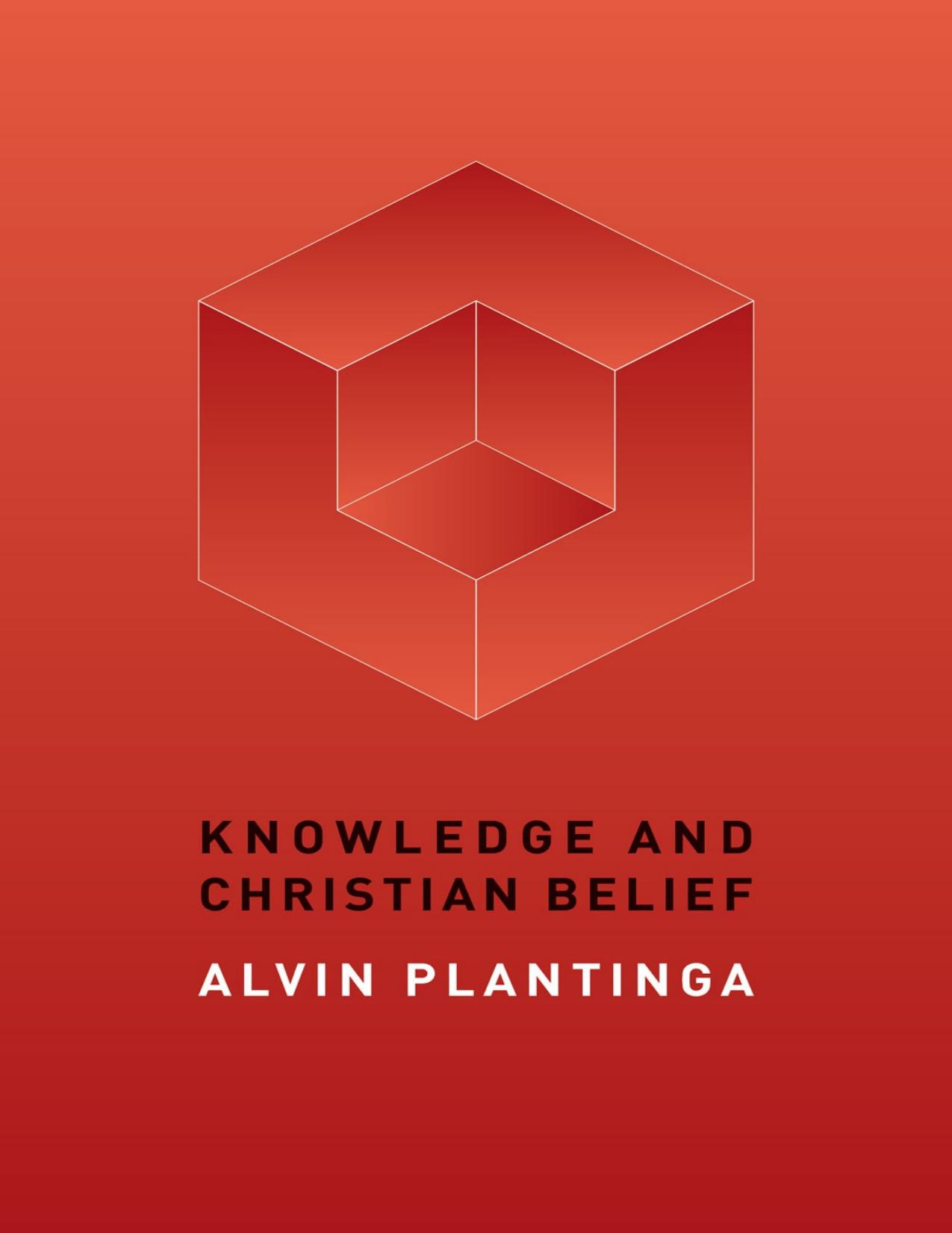Knowledge and Christian Belief by Alvin Plantinga

Author:Alvin Plantinga [Plantinga, Alvin]
Language: eng
Format: epub, pdf
Tags: Religion, Philosophy
ISBN: 9780802872043
Google: iAbRoQEACAAJ
Amazon: B00WIVFQTO
Barnesnoble: B00WIVFQTO
Publisher: Eerdmans Publishing Company
Published: 2015-03-03T22:00:00+00:00
Faith and Warrant
I’m proposing this model as a model of Christian belief’s having the sorts of epistemic virtues or the positive epistemic status with which we’ve been concerned: justification, rationality, and warrant. We’ve already seen how Christian belief can be justified (above, p. 46). There should be little doubt that Christian belief can be and probably is justified, and justified even for one well acquainted with Enlightenment and postmodern demurrers. If your belief is a result of the internal instigation of the Holy Spirit, it may seem obviously true, even after reflection on the various sorts of objections that have been offered. Clearly one is then violating no intellectual obligations in accepting it. No doubt there are intellectual obligations and duties in the neighborhood; when you note that others disagree with you, for example, perhaps there is a duty to pay attention to them and to their objections, a duty to think again, reflect more deeply, consult others, look for and consider other possible defeaters. But if you have done these things and still find the belief utterly compelling, you are not violating duty or obligation — especially if it seems to you, after reflection, that the teaching in question comes from God himself.
But what about rationality and warrant? And since rationality is included in warrant, we can simplify: what about warrant? The part of Calvin’s definition of faith that is especially striking to contemporary ears is that on his account faith is a really special case of knowledge (“a sure and certain knowledge”; see also the account of true faith in the Heidelberg Catechism, above, p. 58). Faith is not to be contrasted with knowledge: faith (at least in paradigmatic instances) is knowledge, knowledge of a certain special kind. It is special in at least two ways. First, in its object: what is allegedly known is (if true) of stunning significance, certainly the most important thing a person could possibly know. But it is also unusual in the way in which that content is known; it is known by way of an extraordinary cognitive process or belief-producing mechanism. The belief-producing process involved is dual, involving both the divinely inspired Scripture (perhaps directly, or perhaps at the head of a testimonial chain), and also the internal instigation of the Holy Spirit. Both involve the special activity of God.
Still, if faith is such an extraordinary way of holding belief, why call it ‘knowledge’ at all? What about it makes it a case of knowledge? Here we must look a bit more deeply into the model. The believer encounters the great truths of the gospel; by virtue of the activity of the Holy Spirit she comes to see that these things are indeed true. And the first thing to see is that, on this model, faith is indeed a product of a belief-producing process or activity, like perception or memory. The activity of the Holy Spirit is or involves a means by which belief, and belief on a certain specific set of topics, is regularly produced in regular ways.
Download
Knowledge and Christian Belief by Alvin Plantinga.pdf
This site does not store any files on its server. We only index and link to content provided by other sites. Please contact the content providers to delete copyright contents if any and email us, we'll remove relevant links or contents immediately.
The remains of the day by Kazuo Ishiguro(8945)
Tools of Titans by Timothy Ferriss(8346)
Giovanni's Room by James Baldwin(7299)
The Black Swan by Nassim Nicholas Taleb(7086)
Inner Engineering: A Yogi's Guide to Joy by Sadhguru(6775)
The Way of Zen by Alan W. Watts(6575)
Asking the Right Questions: A Guide to Critical Thinking by M. Neil Browne & Stuart M. Keeley(5737)
The Power of Now: A Guide to Spiritual Enlightenment by Eckhart Tolle(5723)
The Six Wives Of Henry VIII (WOMEN IN HISTORY) by Fraser Antonia(5483)
Astrophysics for People in a Hurry by Neil DeGrasse Tyson(5168)
Housekeeping by Marilynne Robinson(4419)
12 Rules for Life by Jordan B. Peterson(4291)
Double Down (Diary of a Wimpy Kid Book 11) by Jeff Kinney(4252)
The Ethical Slut by Janet W. Hardy(4232)
Skin in the Game by Nassim Nicholas Taleb(4223)
Ikigai by Héctor García & Francesc Miralles(4216)
The Art of Happiness by The Dalai Lama(4114)
Skin in the Game: Hidden Asymmetries in Daily Life by Nassim Nicholas Taleb(3972)
Walking by Henry David Thoreau(3937)
